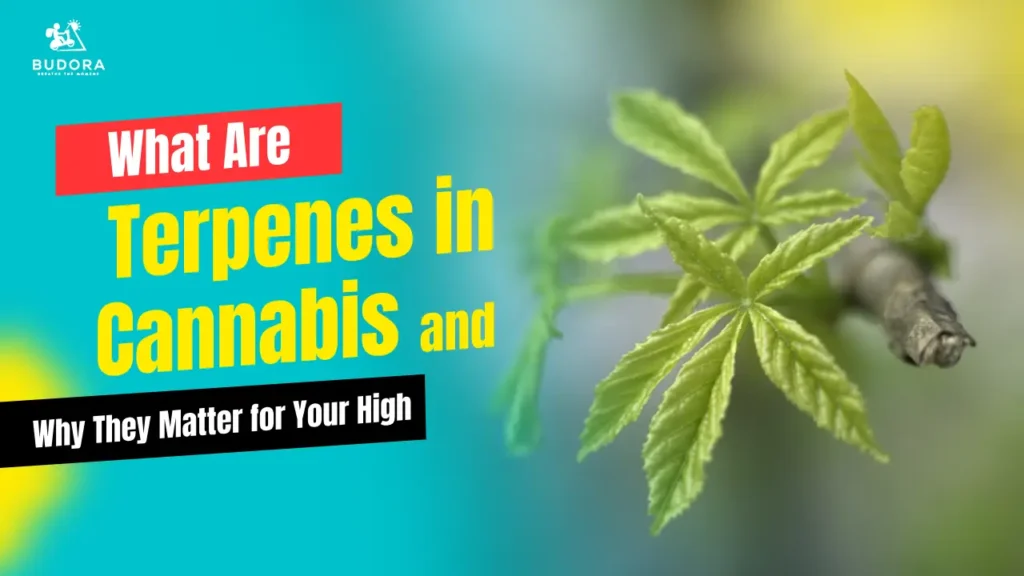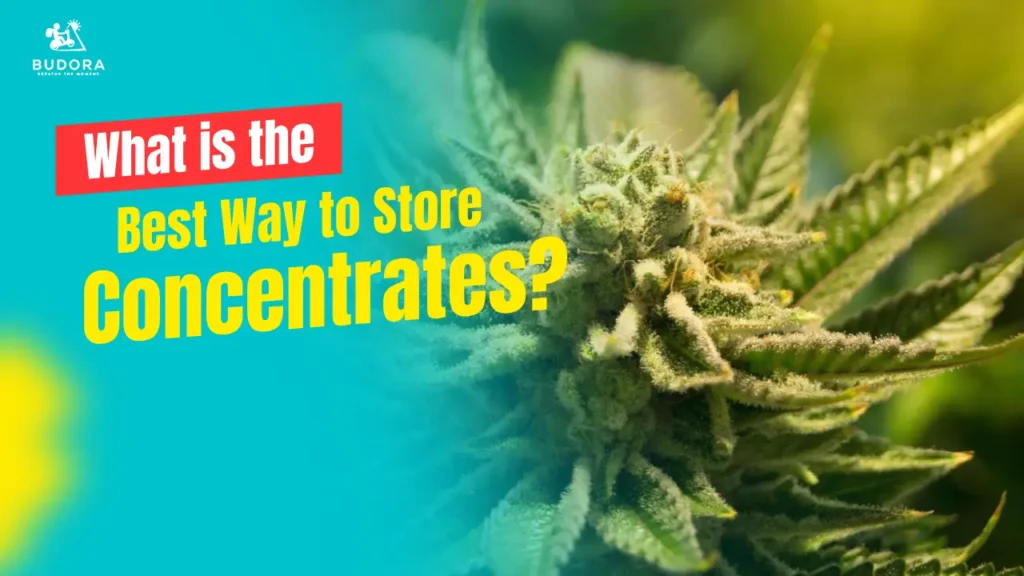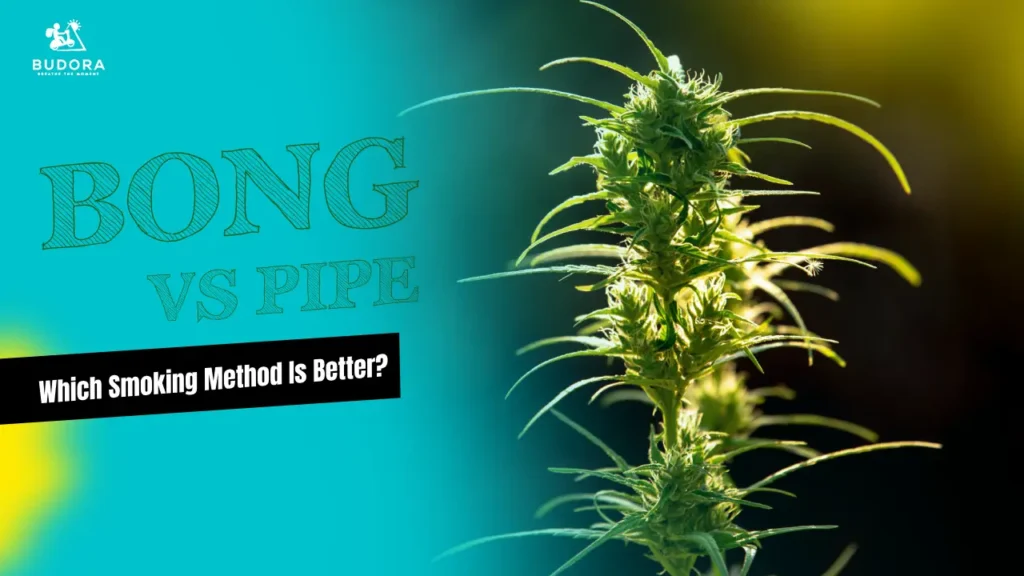Blog
THC and Exercise Recovery: Benefits, Risks, and What Research Says
- Budora Team
- No Comments
- THC
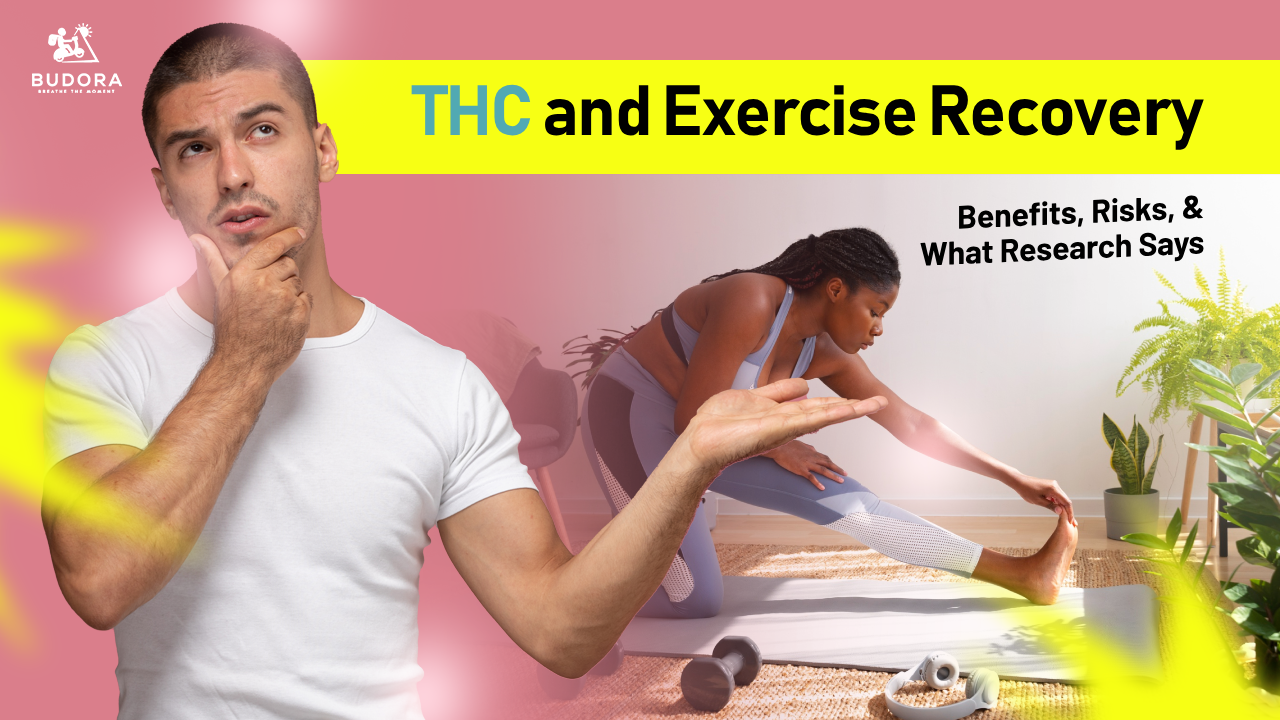
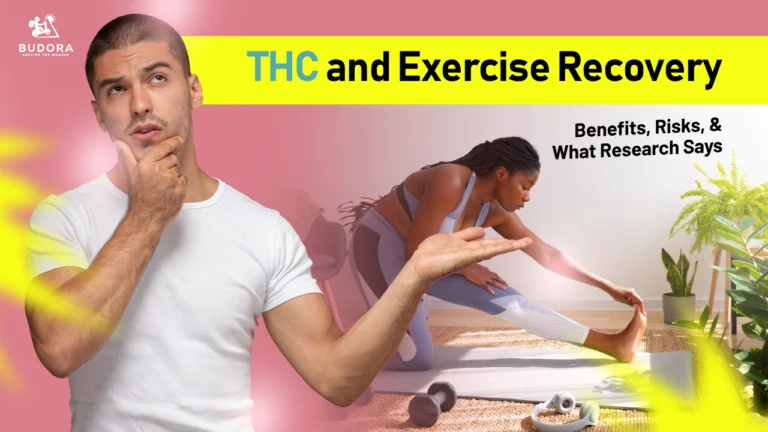
Anyone who has pushed through a tough workout knows that soreness, muscle tightness, and fatigue often follow. For decades, athletes have turned to ice baths, protein shakes, and stretching for relief. But in recent years, THC and exercise recovery have entered the spotlight as a natural, plant-based approach to managing post-workout strain. This guide explores how cannabis can aid recovery, reduce inflammation, and support overall athletic performance.
The Science of Cannabis and Athletic Recovery
Cannabis contains over 100 cannabinoids, but the two most studied are THC (tetrahydrocannabinol and CBD (cannabidiol). While CBD is often celebrated for its therapeutic properties without intoxication, THC also plays a meaningful role in recovery.
Cannabis and Muscle Pain Relief
Muscle pain is the most common complaint after heavy training. Unlike synthetic painkillers, cannabis offers a more natural alternative.
Ways THC may provide cannabis and muscle pain relief:
- Dulling pain signals through cannabinoid receptor activation.
- Lowering oxidative stress in sore muscle tissue.
- Enhancing sleep quality accelerates recovery.
CBD vs THC Exercise Recovery: What’s the Difference?
Both cannabinoids are beneficial, but their roles differ:
- CBD: Non-psychoactive, ideal for inflammation control and general wellness.
- THC: Psychoactive, effective for pain relief, muscle relaxation, and mood improvement.
Athletes often find the best results using balanced THC:CBD ratios, depending on their sensitivity and goals.
Cannabis Sleep and Recovery
Good sleep is the foundation of physical recovery. THC has sedative properties that can shorten sleep latency (the time it takes to fall asleep) and increase slow-wave sleep, which is crucial for muscle repair.
Improved sleep means:
- Stronger immune function.
- Reduced stress hormones.
- Faster muscle healing.
This makes cannabis a strong candidate for cannabis sleep and recovery routines.
Cannabis for Muscle Relaxation and Mental Recovery
Sometimes the hardest part of recovery isn’t physical—it’s mental. Overtraining can leave athletes feeling drained, anxious, or restless. THC promotes a state of calm by reducing neural overactivity.
Benefits include:
- Reduced post-exercise stress.
- Better mood regulation.
- Improved body-mind connection for consistent training.
Real-World Applications: Cannabis for Reducing Exercise Inflammation
Professional athletes and fitness enthusiasts are experimenting with cannabis as part of their recovery toolkit. For example, UFC fighters and marathon runners have spoken about using cannabis to ease chronic muscle pain and enhance rest.
Practical Tips for Post-Workout Use
- Microdosing THC: Helps reduce pain without strong psychoactive effects.
- Topical creams: Target localized inflammation and muscle strain.
- Edibles or tinctures: Provide long-lasting relief during overnight recovery.
Safety and Considerations
While the benefits are promising, athletes should approach THC use responsibly:
- Start with low doses to gauge tolerance.
- Avoid high-THC products before workouts to prevent impaired coordination.
- Consider legal regulations in your area.
Conclusion
The connection between THC and exercise recovery is becoming harder to ignore. From inflammation reduction to muscle pain relief and better sleep, cannabis offers a natural path to holistic recovery. While CBD has its strengths, THC uniquely supports mental relaxation and deeper rest.
Frequently Asked Questions
How long does THC stay in a fit person?
In active individuals with faster metabolism and lower body fat, THC may clear more quickly—anywhere from a few days to a couple of weeks. However, the exact duration depends on dosage, frequency of use, and individual body chemistry.
Does exercise affect THC tolerance?
Regular exercise doesn’t directly lower THC tolerance, but it may speed up metabolism and fat burn, which can influence how long THC lingers in the body. Tolerance itself is more affected by the frequency of cannabis use.
How much THC is enough to relax?
For most people, a low dose—around 2 to 5 mg of THC—is often enough to promote relaxation without overwhelming psychoactive effects. Beginners or sensitive users should start even lower and gradually adjust.
Is CBD or THC better for relaxing?
CBD provides calm without intoxication, making it better for people who want a clear head. THC, on the other hand, can bring deeper muscle relaxation, pain relief, and sedation, though with a psychoactive “high.” Many users find a THC:CBD balance works best.
What is the best THC for relaxing?
Indica-leaning strains or THC products with calming terpenes (like myrcene and linalool) are often considered best for relaxation. Edibles and tinctures provide longer-lasting effects, while vaping or smoking offers quicker relief.
Like this article?

Budora Team
OTHER ARTICLES YOU MAY LIKE

